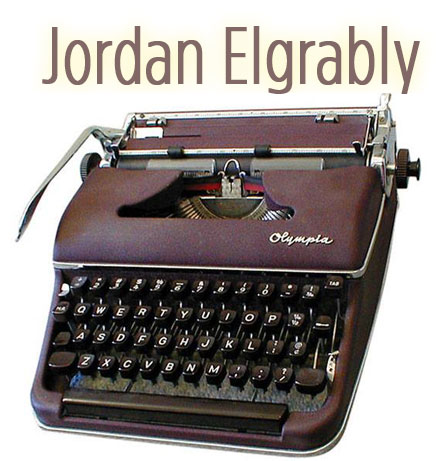We can't allow the dogs of war to run our lives
19 Nov., 2013 | Levantine Review | Jordan Elgrably
When you're the chief advocate of a Middle Eastern cultural center—the only one of its kind in Southern California—you're inevitably in the hot seat. Sure enough, just as I was preparing to head off to a national conference of Arab American leaders representing cultural and social organizations around the country, yet another "war" began between Hamas in Gaza and Israel (I insert "war" in quotes because the Palestinians do not have an army, air power or any military force that would technically qualify them to be even a distant match for the Israel Defense Force).
Just as this new battle is heating up, the civil war in Syria, lest we forget, rages on, with its daily toll of victims, mostly civilian, and more than 30,000 dead already. (Our current art exhibition "I Rise" by Syrian painter Fadia Afashe brings that discomfiting reality up close and personal.)
At the conference of National Network for Arab American Communities, in Philadelphia, we all worked on our reasons for getting together in the first place—networking amongst ourselves to share resources, learning more about how to fund raise, and strengthening our work in our respective communities, where we provide social services, arts programs, educational services and in general promote positive messages about Arab culture and Arab Americans (regardless of religion). Almost none of us wanted to openly talk about Gaza-Israel or Syria.
These conflicts tend to polarize whole communities. They are among many reasons I have argued at length why the United States in general and the Los Angeles region in particular (entertainment and media capital of the world) desperately needs community hubs like the Levantine Cultural Center. They underscore why a cultural arts center that builds relationships and civic engagement among disparate populations can be so compelling.
MODERATES, NOT EXTREMISTS, MUST CONTROL THE DISCOURSE
This, after all, is about building consensus among moderates. Our vision is that most of us are anything but fanatical about politics, religion, nationality or identity. We are rather people who know that talking to each other works. We have personally observed the power of cultural diplomacy. In our circles, whether you are Syrian, Palestinian, Turkish, Jewish or run-of-the-mill American, you absolutely reject the use of force, terrorism or military violence as a means to resolve political conflict, or to exact a price for a perceived wrong.
It's always wrong to kill women and children; it's always wrong to target civilians, period. None of us will argue that point. We are fervent believers in the principles set down in the Geneva Conventions and the Universal Declaration of Human Rights.
We also believe that the Levantine Cultural Center (and organizations like ours), in the public programs we present, allows for diverse viewpoints to be shared. We create a safe space for everyone to dialogue about conflicting narratives.
I would really like to be writing in detail about the wonderful camaraderie I experienced among a coterie of Arab American advocates, whose daily work consists of improving the lives of their constituents through arts, education and social work. However, that has been overshadowed by new conflicts and by the manner in which they are presented by the mainstream media. Once again, Arabs seem to be the dastardly aggressors, while the other side is merely defending itself. My problem is with the way the Arab side is routinely depicted in American television, radio and print news media.
Here is what one of my young colleagues (who requested anonymity) has to say about the current Gaza-Israel conflagration:
It has been incredibly disheartening to watch as the media's coverage of the conflict in Gaza continues to skew reality. Israel is framed as the victim driven to self-defense while Palestinians are named the aggressors, meanwhile all context of the conditions that gave rise to the violence are ignored. Massive violence has been inflicted upon Gaza and Palestinians, yet massive amounts of air time and web space is disproportionately placed on the violence inflicted upon Israel and Israelis. The inherent bias can be seen in one western media report where Israelis are reported "killed" while Palestinians are reported to have "died." When it comes to this conflict, it seems as though shaping public opinion to align with American foreign policy interests has been widely accepted as priority over accountability and fair and ethical reporting.
We really don't want to take sides, and we must refuse to be drawn into these us-and-them battles. In reality I don't believe there is "us and them"—there is only us. We are all responsible for the fate of our children. We owe it to them—whether they are Arab/Muslim, Christian or Jewish, whatever they are, wherever they are—to safeguard the peace and promote a more pacific world.


